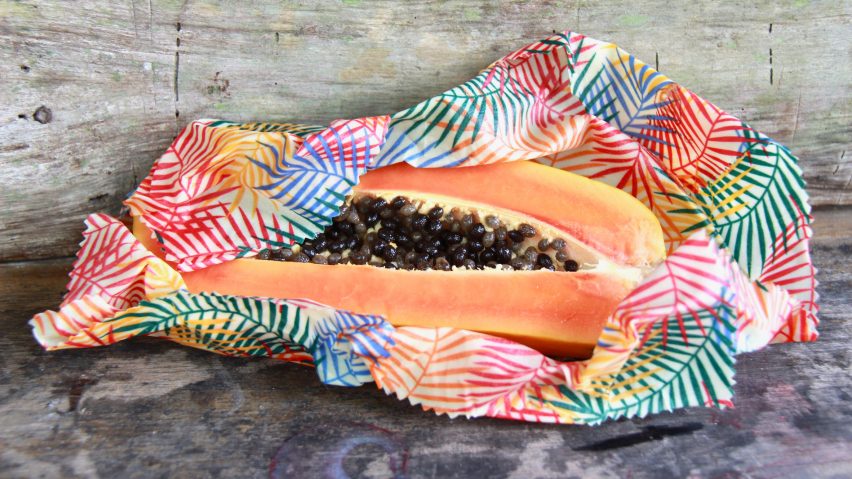
SuperBee wax wraps offer an alternative to cling film
Thai company BeeConscious has created wraps from beeswax-coated cotton, that can stand in for cling film and other plastic packaging for food.
The SuperBee wraps – which are nominated for a Dezeen Award in the homeware design category – are washable and reusable for up to two years.
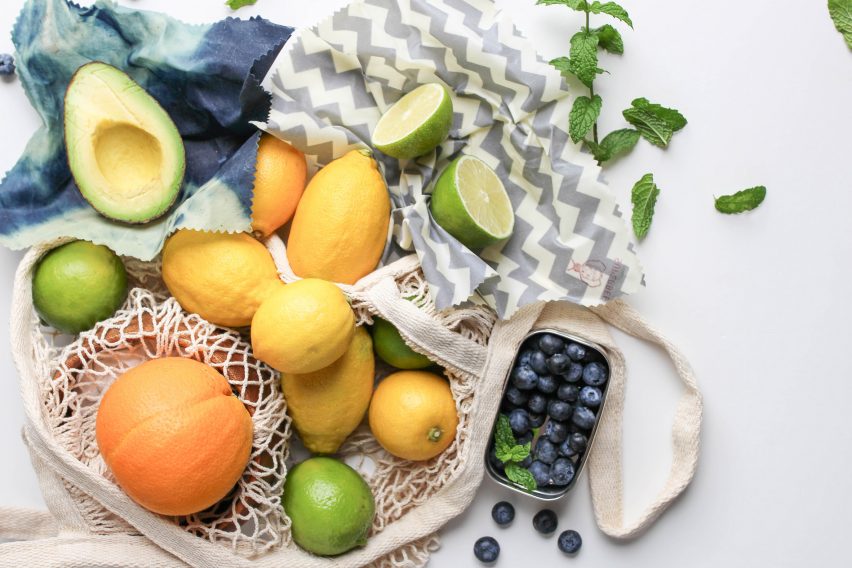
Beeswax acts as a natural antibacterial agent, while added coconut oil and golden tree resin help the wraps shape and stick to the food.
Founder Antoinette Jackson says that ultimately, the wraps aren't just more sustainable but also better at keeping food fresh than their plastic equivalents.
"Using our wraps, will reduce food waste more than plastic bags or other wraps do," she told Dezeen. "We have tested this on lettuce, mint, avocado and lemon. Plastic suffocates but beeswax allows your food to breathe, like the skin of a fruit does. "
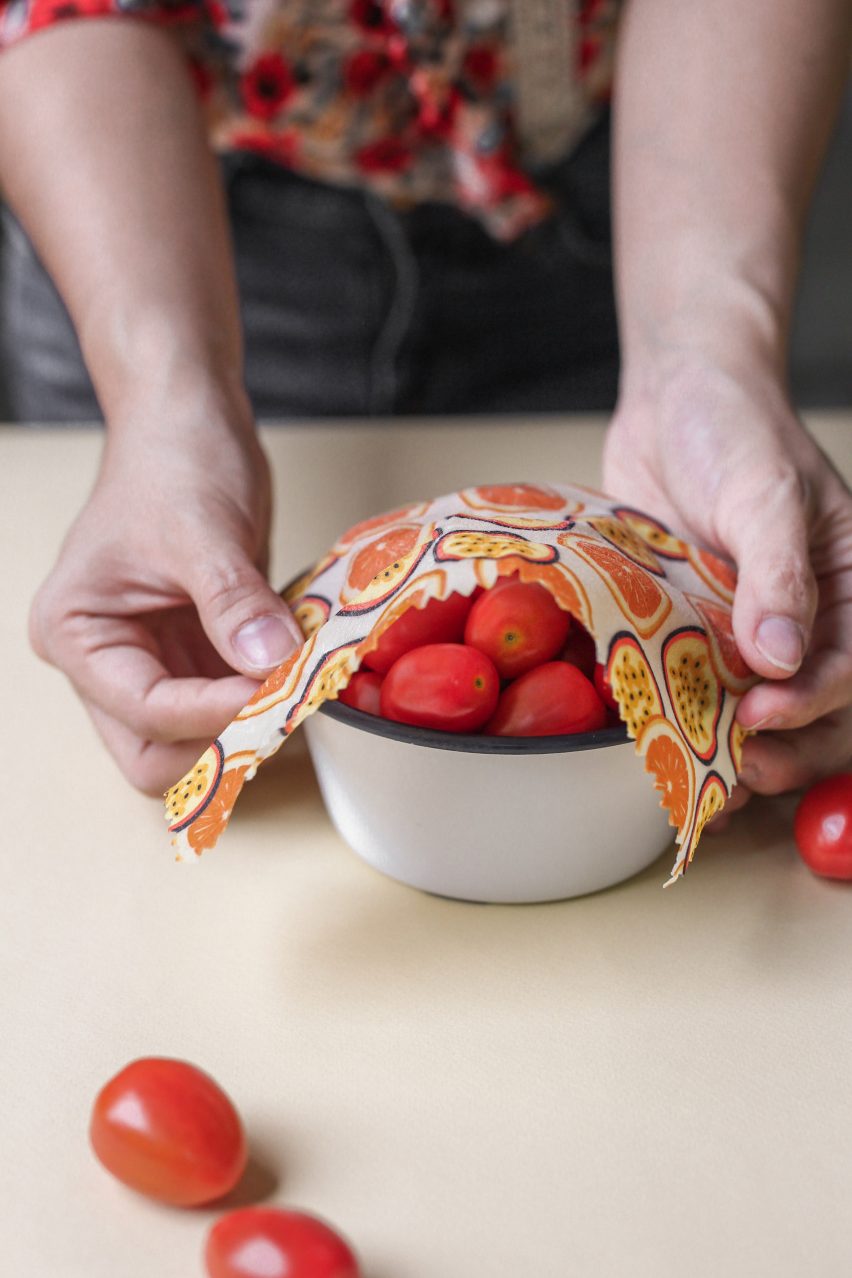
To create the wraps, Jackson sources certified organic cotton. From there, the fabric is washed, dried and rolled, before being cut into strips and finally into squares using zigzag cutters.
"The zigzag edges make the product more durable and functional," said Jackson.
"They prevent the fabric from fraying and help the wax wraps grip a tighter and wider circumference around the food or bowl being wrapped."
Finally a wax solution is applied to the fabric. The solution is carefully processed in order to protect the antibacterial agents in the production process.
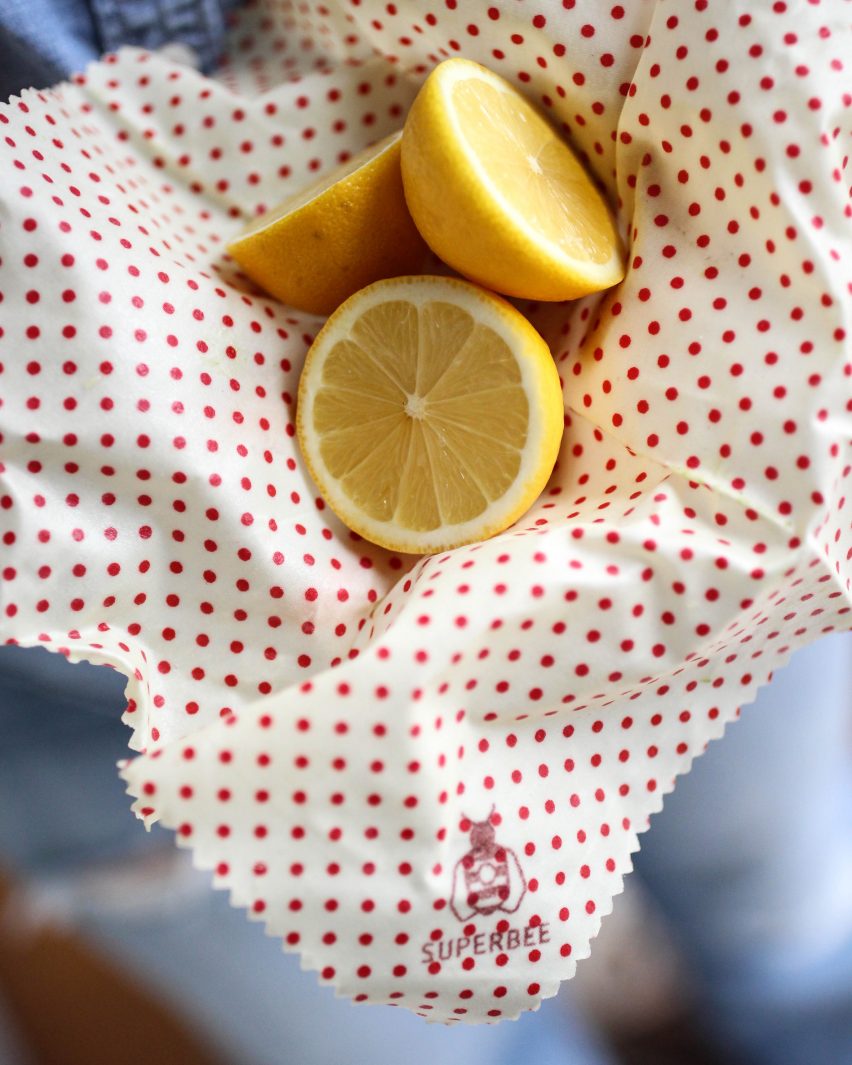
The wraps come in four sizes – from small to extra large – and as pre-made bags. Dedicated wax bars can be grated and melted over the sheet to restore the coating when it starts to wear off.
All products are made by hand in the BeeConscious studio in Bpang Yang, a village about an hour's drive from Chiang Mai in northern Thailand.
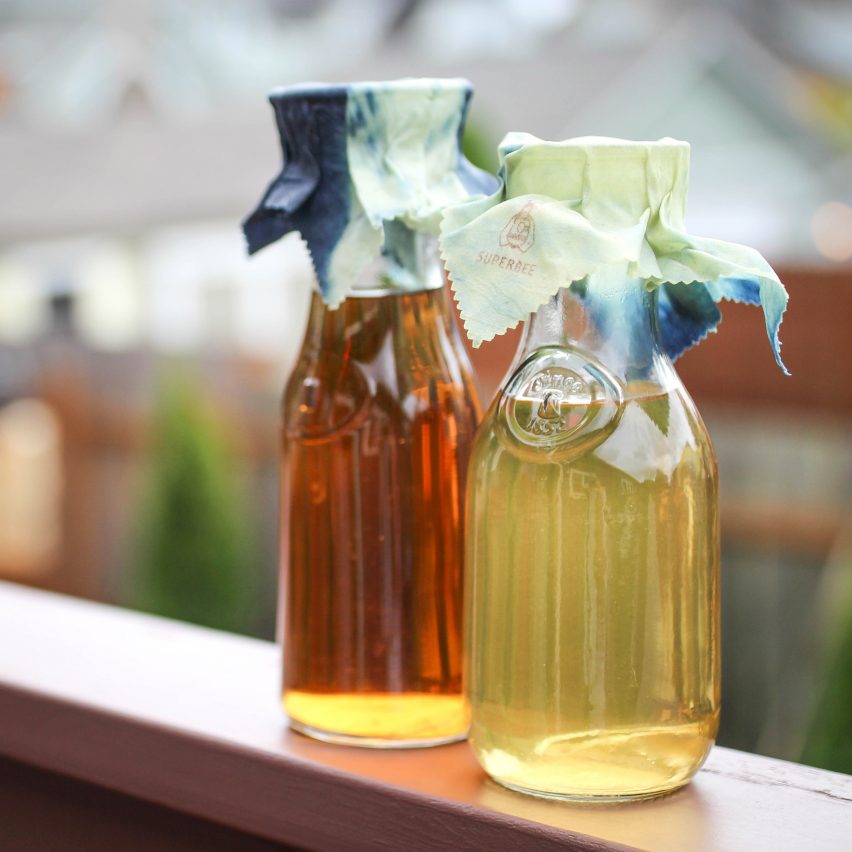
BeeConscious started out as a one-woman operation, but soon expanded to employ 22 workers, predominantly women, when Jackson realised she had an opportunity to bring employment to the local community.
Today, the company pays 20 per cent above the living wage suggested by the Fair Trade Association and gives interest free loans to its staff to help get them out of debt.
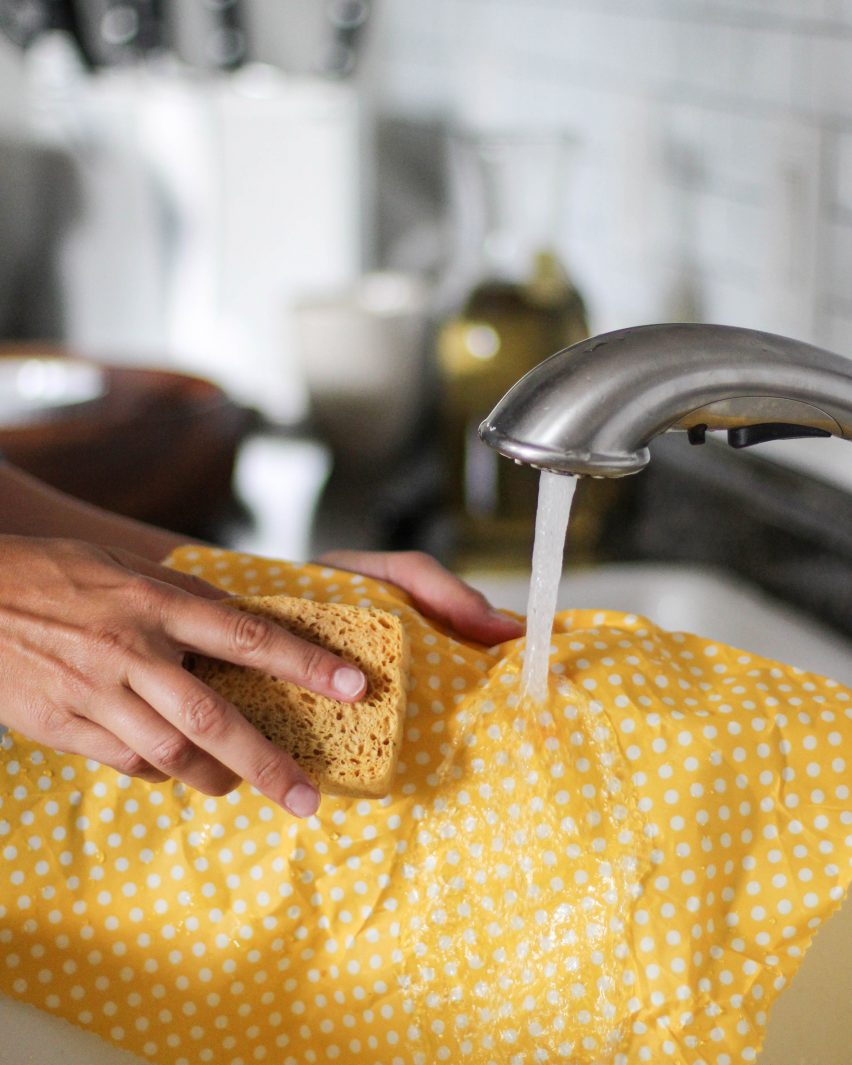
"We believe that generosity breeds prosperity," said Jackson. "By giving away 20 per cent of our profits to like-minded projects and providing full social-security cover for our staff, we hope we set a good example in our community and country, while providing products to assist the habit changes."
Other projects seeking to replace single-us plastic packaging include meat packaging made from animal skin and cosmetics bottles that can be used as soap once they are empty.